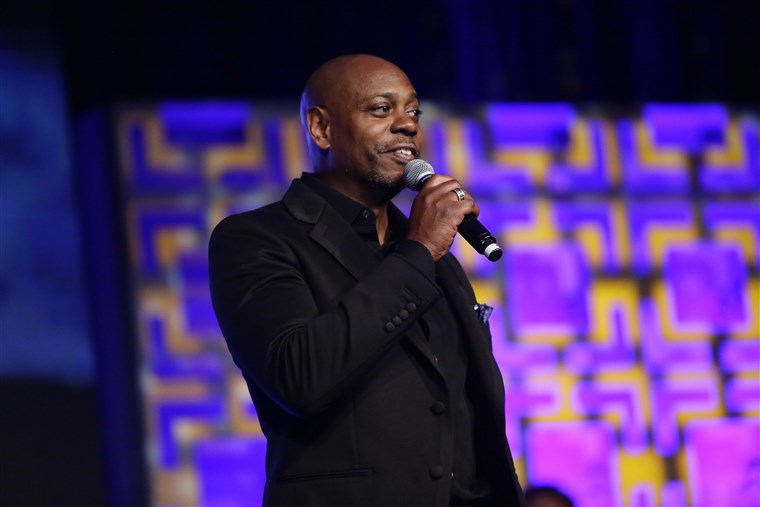Steps away from WIS’s primary school campus is the acclaimed Duke Ellington School of Arts, an iconic arts school that Washingtonians are proud to have in their city. David “Dave” Khari Webber Chapelle, a member of the class of 1991, has become one of Washington’s most notable natives as his comedy career grows to be one of the most complete and critically acclaimed of all time. Over the course of his career, Chapelle has received three Grammy Awards and two Emmy awards, and has signed a deal with Netflix, releasing several stand up comedy routines onto the streaming platform. Most recently, he hit Netflix users with “8:46”, a 27-minute long stand-up released on June 12. He discusses primarily an issue as important to Washingtonians as it is to him: police brutality and systemic issues regarding the treatment of African-Americans in the US.
Washington has one of the largest black populations of any city in the United States—there are more black residents than any other racial group in the city and nearly half of the population identifies as African-American. With such a large black population in such a politically oriented city, it is no surprise that the outrage sparked by the death of George Floyd, Breonna Taylor, Stephon Clark, and other black Americans at the hands of police have manifested into massive protests in the nation’s capital. Over the summer and leading into the fall, hundreds of thousands of individuals attended protests regarding issues hurting black Americans, namely police brutality. The most notably recent incident of police brutality against a black individual was that of George Floyd. Floyd was killed on May 25th by MPD officer Dereck Chauvin when he pressed his knee onto Floyd’s neck for what was initially listed as eight minutes and 46 seconds. This duration of time influenced the title of Chapelle’s special, “8:46”.
Chapelle starts the show by recalling a recent memory in which he experienced an earthquake for the first time in his life. He recalls that “I forgave myself for being terrified […] that earthquake couldn’t have been more than 35 seconds. This man kneeled on a man’s neck for 8 minutes and 46 seconds! Can you imagine that?” as he erupts with total frustration. He then lividly asks a rhetorical question to the police while kneeling down the way Officer Chauvin did in one of the defining occurrences of this year: “What are you signifying? That you can kneel on a man’s neck for 8 minutes and 46 seconds and feel like you wouldn’t get the wrath of God?”. He continues by claiming people want celebrities like him to speak out solely because the public trusts them and that he never lies whereas “every institution we trust lies to us”.
The special then leads into a criticism of Fox News Host Laura Ingraham’s request to Lebron James in 2018 to “shut up and dribble” instead of talk politics, and voices his outrage regarding the death of Eric Garner, who said the same words as George Floyd did before his death: “I can’t breathe.”
He segues into his observation of various police killings, which were all perpetrated by black men with military experience. He exclaims that the reason for this is that “they believe, just like they did when they were joining the f*cking military, that they were fighting acts of terror! These are our people! These are our countrymen!”.

Then, there is a personal turn. Chappelle speaks not only as a celebrity, but now as a black American, giving the powerful statement of “We’re not desperate for heroes in the black community, any n*gga that survives this nightmare is my goddamned hero!”.
Chappelle explains the history of his ancestors and how slavery and racism are still deeply rooted in families, with his great grandfather being only the second black individual ever to be invited to the White House after being born enslaved. His grandmother who was also born a slave, was the woman his father was calling to on his deathbed. That was the only other instance besides Floyd’s death where Chappelle witnessed a man calling to his mother.
Chappelle’s special was received positively by a wide variety of individuals and media outlets, even by some that he criticizes. This deeply emotional special on society, politics, and injustice is the perfect representation of the passion, fury, and intellectual discussion occurring today on social issues African-Americans are facing all over the country.
Ultimately, Chapelle is still a comedian and his perspectives are influenced by that fact, as are his specials. This is something incredibly powerful; allowing these issues to be talked and learned about in an easier and more tolerable fashion while avoiding making light of an incredibly serious issue is something that can be truly beneficial to progress. It is also the reason that many in the WIS community could enjoy and benefit from the incredibly powerful and occasionally hysterical special from Dave Chappelle.

































































